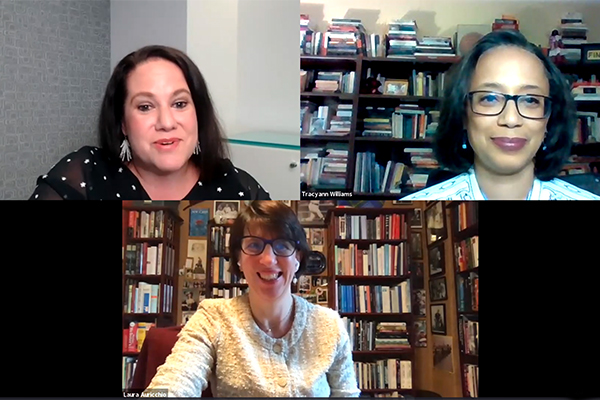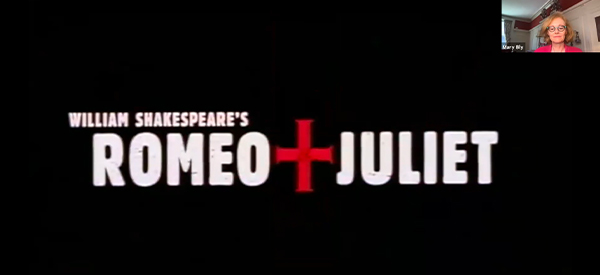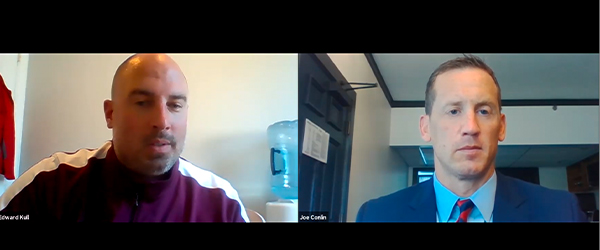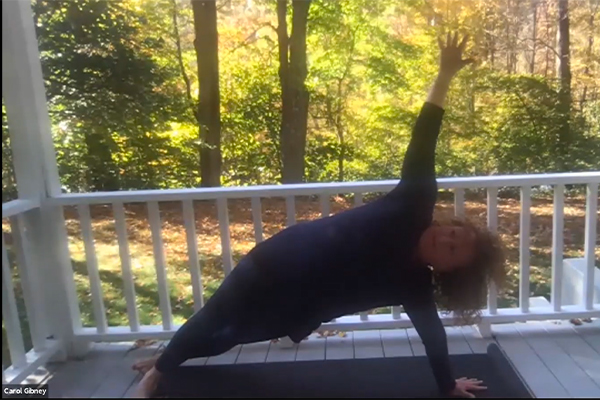Moglia, an award-winning football coach and transformational business executive, is just the fourth alumnus to be honored with the Fordham Founder’s Award as well as induction into Fordham’s Hall of Honor and its Athletics Hall of Fame. He is also a member of Fordham Prep’s Hall of Honor and Football Hall of Fame, and received an honorary doctorate from the University in 2009.
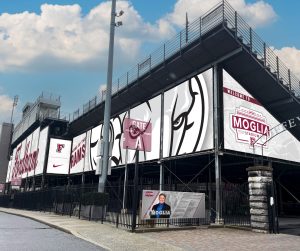
“Joe embodies the Fordham way,” said Tania Tetlow, Fordham’s president. “From his time as a student at the Prep, his undergrad days at Fordham University, and throughout his business and coaching career, Joe has been closely connected to Fordham and all this institution stands for. Joe has made us proud by clearly living the Fordham principles and mission. The stadium upgrades wouldn’t be possible without Joe’s continued generosity to the University. We are honored to name this stadium after him.”
Fordham will begin renovations to Moglia Stadium at Jack Coffey Field in order to make the stadium a top-tier venue for games and University events. The improved facility will feature a state-of-the-art video board, seating and press box renovations, upgraded lighting, and other improvements that help raise the profile of the University, boost recruitment, and enhance the game-day experience.
A Life of Leadership on the Field and in the Boardroom
A son of immigrants who grew up in the Dyckman Street area at the northern end of Manhattan, Moglia played football and baseball for four years at Fordham Prep before attending Fordham College at Rose Hill.
“I loved and always appreciated the education I got from Fordham,” Moglia said, citing its Jesuit approach as well as the many strong friendships he formed via the University and the Prep. “I’m proud to have been able to have a positive impact on the lives of others, and that all traces back to Fordham. A big part of whatever success I’ve achieved across two career paths is because of the education that I received there.”
When Joe began at Fordham, he was already a husband and father, and completely responsible for his education. He funded those expenses by driving a yellow taxi cab and a truck for the United States Postal Service. He also worked in his father’s fruit store, all the while carrying a full course load at Rose Hill. Due to his responsibilities, Moglia wasn’t able to be part of the Rams football team, but it was at Fordham that he began his football coaching career as an assistant at Fordham Prep.
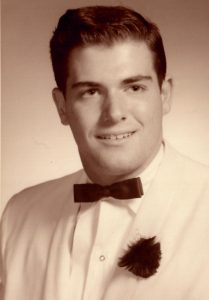
His coaching experience and the education he received at both the Prep and the University were formative for him, leading him to formulate, at age 21, his leadership philosophy – BAM – which defines the principles of a leader: standing on one’s own two feet, taking responsibility for oneself, treating others with dignity and respect, and accepting the consequences of one’s actions.
This philosophy, he said, “dealt with everything: The idea of spiritual soundness, really knowing who you are so you can make better decisions under stress; courage, the guts to do what you really believe is right; love, the recognition that leadership is not about you, it’s about the well-being of others; and the ability to adapt and adjust when things are not going particularly well.”
This philosophy guided him in his one-of-a-kind career as a winning head college football coach and successful Wall Street executive, he said. He coached high school and college football after graduating from Fordham and went to work on Wall Street in 1984, at Merrill Lynch, and eventually became CEO and board chairman of TD Ameritrade.
When he stepped down as CEO from TD Ameritrade in 2008, shareholders had enjoyed a 500% return. Joe stayed on as chairman of the TD Ameritrade board through 2020 when the firm was acquired by Charles Schwab. When the deal was announced, the combined company was worth $100 billion and had client assets of $7 trillion; when Moglia first arrived, these numbers were $700 million and $24 billion.
After stepping down as CEO of TD Ameritrade, Moglia decided to go back to football as a Division I head coach. In 2012, Moglia was named head football coach at Coastal Carolina University. In his last 11 years as a college football coach, Joe was part of eight championship teams and received the Eddie Robinson National Coach of the Year Award and the Lombardi Award. He was also inducted into 10 Halls of Fame, including the Vince Lombardi Hall of Fame, named for the 1937 Fordham alumnus. Moglia now serves as chair of athletics and is an advisor to Coastal Carolina University President Michael T. Benson.
Moglia Stadium
Moglia Stadium is part of a complex at the Bronx campus that includes Jack Coffey Field—the playing field for football and soccer—as well as Houlihan Park, the University’s baseball venue. The renovations will be a “game changer” because of the importance of the stadium as “a central theater of school spirit and school pride—internally on campus, externally in New York City and the tri-state area, and also for our alumni base,” said Fordham’s director of athletics, Ed Kull. The benefits of the stadium upgrades will extend not only to football and other sports but also to Fordham Prep, which uses University facilities as part of athletics collaborations, Kull said.
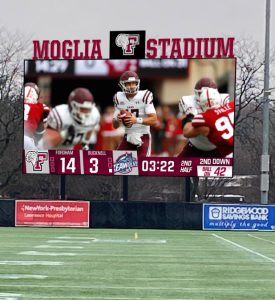
The stadium improvements also include new connections with a video control room in the Lombardi Center that, when completed, will be used to livestream all home athletics events and provide a training ground for WFUV student announcers and other students interested in broadcasting.
A new digital scoreboard and VIP viewing box are planned, along with other seating improvements.
The project will build on other recent enhancements like new offices for the football program, also supported by University benefactors. The stadium upgrades will help Fordham achieve parity with the stadiums at competitor schools and boost recruitment, “the lifeblood of the program,” aiding the program in its goal of once again reaching the NCAA Football Championship Subdivision (FCS) playoffs every year, said Joe Conlin, head football coach.
Kull said the football program tries—successfully—to recruit student-athletes who can be academic achievers at Fordham. Conlin also noted the team’s many community service efforts, such as visiting children in elementary and middle schools and working with Team IMPACT, a nonprofit that supports children living with serious illness or disability.
The revamped stadium will reflect “the class of institution that Fordham is,” Conlin said. “We should have a great game-day experience. We should have a great stadium. It’s a fantastic school and we have a fantastic fan base, and we have the best tailgate in FCS football, so the stadium should match that.”
]]>The Ramses Challenge was announced Aug. 31 by Fordham athletics, just in time for the fall season. Donors are asked to pledge an amount they’ll give for every touchdown or defensive sack by the football team; every goal scored by the water polo or men’s or women’s soccer teams; each set won by the volleyball team; or each top-20% finisher in the cross country program. All gifts are tax deductible and go directly to the donor’s sport of choice.
So far, all of the fall teams have received donations through the challenge, which will eventually be expanded to all varsity sports and, likely, to Fordham’s club sports as well. “We want our supporters to feel like they are a part of the team, in that we want them to feel just as excited as our student-athletes about every touchdown or goal scored,” said Ed Kull, Fordham athletics director.
The donated funds will advance Fordham’s $350 million fundraising campaign, Cura Personalis | For Every Fordham Student, by supporting recruitment, team travel, gear and equipment, tutors and academic support, and other things important to teams’ success and players’ growth and development.
Stronger Bonds
The programs’ coaches hailed the initiative for its potential to strengthen bonds that sustain their programs.
“This is such a great opportunity to reconnect with our alumni and support Fordham volleyball,” said Ian Choi, the program’s head coach. “The landscape of college athletics is changing so rapidly, but our program has never wavered in our dedication and regard for the student-athlete.”
Joe Conlin, head football coach, expressed gratitude for the challenge, calling it “a great way to engage our former players who played on the offensive and defensive lines, and also have parents support their players.”
The football Rams have made a strong start to the season and to the Ramses Challenge—they scored six touchdowns and three field goals in the Sept. 17 Homecoming game, prevailing over the University at Albany 48-45 for a 3-0 record to date. That night, the men’s soccer team, four-time Atlantic 10 champions, played the University of Rhode Island to a 2-2 draw in their opening Atlantic 10 contest. The next day, the water polo team completed a perfect 4-0 weekend at the Bison Invitational.
Achievements Beyond the Playing Field
In other recent highlights, in July the volleyball team earned a 2022 United States Marine Corps/American Volleyball Coaches Association Team Academic award, the third straight year the Rams have earned that honor. Also, 12 of the team’s student-athletes were among the 290 Rams who earned placement on the Atlantic 10 Commissioner’s Honor Roll for the 2021–2022 academic year.
On Sept. 14, the cross country and track and field program announced that it earned a Tara VanDerveer Fund for the Advancement of Women in Coaching grant, making Fordham one of only 10 colleges and universities to receive that honor this year. The grant is awarded by the Women’s Sports Foundation to support women coaches’ professional development.
“We recognize the critical importance of closing the gender gap in the coaching ranks,” said Brian Horowitz, FCRH ’10, GSE ’11, head coach of Fordham men’s and women’s cross country and track and field teams, “and seeing more women in these influential roles helps inspire our female student-athletes.”
He said the program’s VanDerveer Fellow, Assistant Coach Nickeela Austin, is vital to the program, “and this grant will allow her to continue to grow both as a coach and as a professional.”
See below for links to join the Ramses Challenge or make a one-time donation to a program:
Football
Water Polo
Volleyball
Men’s Soccer
Women’s Soccer
Cross Country
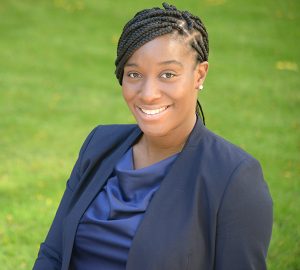
From tennis star Naomi Osaka’s willingness to say “it’s OK to not be OK” to the panic attack-prone title character of the T.V. show Ted Lasso, mental health in sports seems to be having its moment. But the professionalization of wellness in sports is still evolving and involves far more than having a psychologist on staff. It’s about coordinating every aspect of a student-athlete’s well-being, psychologically, physically, emotionally and spiritually, said Djenane Paul.
In September, Paul was promoted to become Fordham’s Deputy Athletic Director for Student-Athlete Welfare and Competitive Excellence. She’s been working since 2016 to bring together the many parts of student-athlete wellness, including nutrition, sports medicine, strength and conditioning, and behavioral health. Her efforts have created an infrastructure on which a full-fledged student-athlete mental health program at Fordham could grow.
Centering Wellness on Cura Personalis
“Part of the goal was to normalize mental health and to build [the program]from a place where student-athlete wellness is rooted in cura personalis,” said Paul. “If we believe that we need to care for the whole unique individual, then we needed it to be consistent with every aspect of a student-athlete’s education, including athletics.”
According to an August 2021 statement on mental health challenges for athletes from the American College of Sports Medicine, approximately 30% of women and 25% of men who are student-athletes report having anxiety, and only 10% of all college athletes with known mental health conditions seek care from a mental health professional. Fortunately, Fordham Athletics had been building its wellness program well before the pandemic exacerbated the issue, said Paul.
Fordham Athletic Director Ed Kull said many aspects of health—including mental health, wellness, and nutrition—are top priorities for Fordham athletics under the University’s $350 million fundraising campaign, Cura Personalis | For Every Fordham Student, which seeks to reinvest in all aspects of the student experience. Other priorities include support for students’ academic efforts and personal, leadership, and career development.
“Our Rams are high-achieving individuals and we are continually identifying new ways to care for their whole person–both in and out of competition,” Kull said.
Paul initially sought guidance from Counseling and Psychological Services Director Jeffrey Ng, Psy. D.; sports performance psychologist Jonathan Fader, Ph.D., and his firm SportStrata; and the students themselves, like Sydney Canessa, GABELLI ’17. Canessa was a senior playing softball when she helped Paul design, distribute, and analyze data from a survey for the then-nascent athlete mental health program.
The anonymous survey asked student-athletes if they or their teammates have ever struggled with mental health, whether they would consider seeing a sports psychologist, and whether they wanted the department to have a therapist on staff. Paul said that she was not surprised to learn that student-athletes were not only open to discussing mental health, but they were also open to seeing a mental health professional. The survey spurred Canessa to work with teammates and Paul to form T.E.A.M. Fordham (Together Everyone Achieves More), which seeks to help student-athletes mentally prepare for their post-athletic careers.
“I personally saw teammates struggle and I thought it would make a huge difference if all athletes could help each other,” said Canessa, adding that her peers didn’t view seeing a therapist as a weakness.
Canessa said that for most student-athletes, graduation often means breaking away from a life-long passion which is the very reason that T.E.A.M Fordham was created—to ensure that student-athletes were prepared for their life after Fordham.
“The majority of us would not become professional athletes once we graduated, so we wanted to make sure that once college was over we didn’t have an identity crisis,” said Canessa.
In 2020, as one athletic season after another was canceled due to the pandemic and discussions around social unrest continued, student-athletes once again pulled together with Paul and Associate Athletic Director for Compliance and Student-Athlete Development Jamilah Ali-Shaffer. With their advisers, along with the Fordham Athletics Social Justice Task Force, they formed a student-athlete-led group called Fordham Connect. Its mission is to create a safe space where student-athletes can engage in open conversations about issues affecting them and foster a healthier environment within Fordham Athletics. While T.E.A.M. Fordham honed its focus on helping student-athletes prepare for a post-academic life and developing the whole person, the Fordham Connect aims to erase the stigma around vulnerability and mental health in sports.
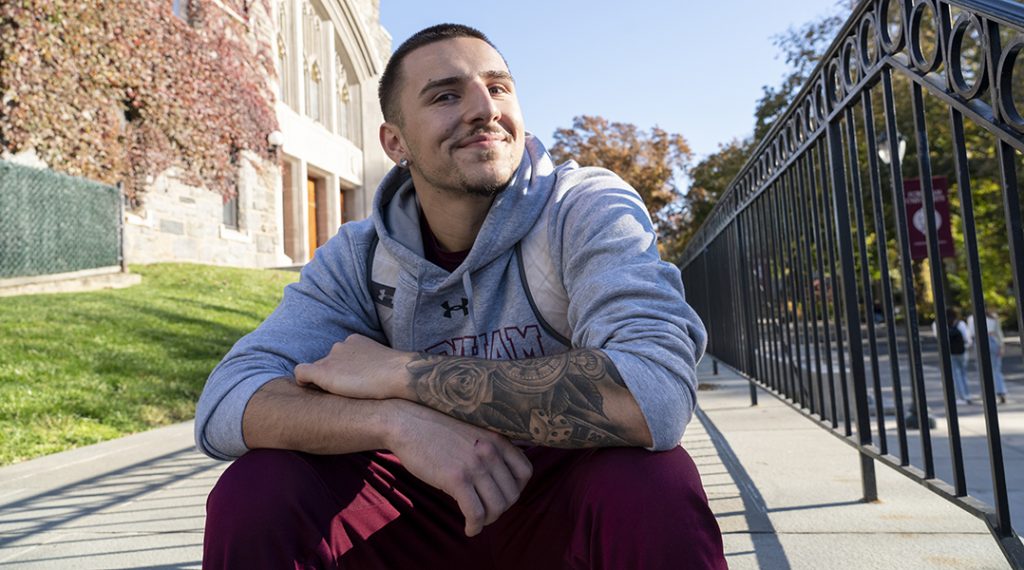
Kickstarting a Wellness Program with NCAA Support
But back in 2017, Paul was still just getting the ball rolling. She took the survey findings to then-Athletic Director David Roach, who backed her plan to further explore formalizing a mental health and wellness program. It’s a position Kull continues to prioritize and support.
At the time Roach was athletic director, the NCAA distributed a one-time grant to assist college athletic departments in promoting health and well-being. The monies were allocated toward mental health and sports psychology, allowing the athletic department to retain SportsStrata as consultants for six years. The funding is now in its fifth year.
Fortuitously, Paul was then approached by Lauren Shute, GSS ’20. Shute, a former student-athlete and sports journalist, was getting her Master of Social Work degree at Fordham. She was interested in the intersection of sports wellness and social work, a field that’s still developing. She asked Paul if she could do her required field placement at Fordham Athletics to help design a program that includes a social worker.
Shute said social workers are trained at helping clients navigate the many existing services already available to them.
“With college athletics, you’re communicating with a lot of systems: a strength and conditioning coach, a dietitian, an academic coach, psychological services, professors,” she said.
She added that coordinating care also must factor in a student-athlete’s background and home life alongside the “macro level factors,” something that social workers are trained to do.
One way to introduce student-athletes to various services, Shute said, is to bring all the players and support staff together to discuss a particular topic, such as body image. Shute and Paul did just that in 2019.
“We facilitated the discussion and teammates did open up,” she said.
It was the first of many discussions organized with coaches, team members, a nurse practitioner from Health Services, the institution’s dietitian, and a psychologist from Counseling and Psychological Services. Other topics included were anxiety, depression, family discord, and transitioning out of sport.
Program Continuity is Key
With every new partnership that Paul fosters, she makes sure that it’s not a one-shot deal. She accepted Shute as an intern provided the GSS partnership continued after she graduated. This year another GSS student was assigned a field placement in Athletics, the second since Shute’s placement. By the end of Shute’s tenure the discussion groups succeeded in getting the word out that a social worker was on hand to help. Coaches and teammates now regularly refer athletes to them.
“My experience was fantastic and what was interesting to me is that a lot of the kids at Fordham are not looking for a career in sports; they’re really there to get an education, they were so trusting and so open and willing to talk about different issues and that’s why the program works so well,” said Shute
In addition to the GSS field placements, Paul helped foster other new partnerships that will continue into the foreseeable future, including partnerships with Boston University, which has sent several sports psychologist interns to Fordham and the consulting partnership with SportStrata has grown to include a contracted mental performance coach who is a licensed mental health counselor.
Coaches at the Center
Paul said aspects of her new role aren’t really all that new. Rather it’s a formalization of support structure that already existed organically.
“We wanted to make sure there was a reporting structure for the coaches and that they were aware of all of the mental health resources available to their student-athletes,” she said. “We then make sure that psychological services, health services, and sports medicine get involved, but the first line of defense will always be the coaches.”
An impromptu interview with a member of the football team on the Rose Hill Gymnasium steps confirmed as much. Fordham College at Rose Hill junior Jeff Ciccio plays tight end on the football team. He said that if he has an issue, he has no problem going to Head Coach Joe Conlin because the coach talks about mental health in team meetings.
“He is very strong with that and likes to talk about it in team meetings and lets us know that he’s always there for us,” said Ciccio. “And another one of my coaches helps me a lot, he likes to check in on me because I’ve gone through some stuff early in my life and he went through something very similar to what I went through.”
Student-athletes usually exhibit the same mental health concerns as the general student population, from relationship concerns to family issues and academic struggles, Melissa Gluck, Ph.D., the therapist dedicated to helping student-athletes from Counseling and Psychological Services.
“The most important thing to remember when serving the athletic community is that these student-athletes are people first and you have to treat the person before the ‘athlete,’” said Gluck. “It’s really easy to think that because they are athletes their problems will be vastly different than other students but that is just not the case.”
However, one key difference is that student-athletes are working two full-time jobs as Fordham students and as athletes, she said. She added that in treatment it’s important to consider team dynamics and what their coaches expect from them.
Fordham coaches believe that having strong mental health is part of the strategy for success, said Paul.
For his part, Ciccio credits Coach Conlin as “the best coach around to keep us mentally strong.”
“We’re only as strong as our weakest link. We got to make sure that everyone is as mentally strong as each other, because not everyone is going to be as physically strong as the next guy in the weight room, so it all comes down to mental. And I think here at Fordham we are very strong mentally.”
To inquire about supporting athletics or another area of the University, please contact Michael Boyd, senior associate vice president for development and university relations, at 212-636-6525 or [email protected]. Learn more about Cura Personalis | For Every Fordham Student, our campaign to reinvest in every aspect of the Fordham student experience.
For more information on giving in support of Fordham athletics, contact Kara Field at [email protected]. Learn more about Cura Personalis | For Every Fordham Student, a $350 million fundraising campaign to reinvest in all aspect of the Fordham experience.
]]>
So when Glenn Lesko, chief growth officer at DASH Financial Technologies, an agency-only brokerage and technology provider, approached the team about putting together an internship program for Fordham football players, Conlin said it was a natural fit.
“It’s our job to develop them as football players, but it’s also our job to help them as best we can achieve future success,” Conlin said. “In the recruiting process, when I sit down in a living room with parents or guardians of student-athletes, I make a promise to them that I’m going to work as hard as I can to create those opportunities for them.”
Conlin said the partnership with DASH, which provides participating Fordham football players with a paid internship, is an example of that. And DASH is just one of more than 3,500 organizations in Fordham’s internship network, according to the Office of Career Services.
A Fordham Connection
For Lesko, the partnership with Fordham is a way to recruit talented interns while honoring his late father, William S. Lesko, M.D., a 1958 Fordham College at Rose Hill graduate.
“He went [to Fordham]to play football, but they canceled the program [in 1954, his first year],” Lesko said. “But my dad also had varied interests. He wanted to go to medical school; he was a naturalist and loved the [New York] Botanical Garden and bird-watching and all these other things. And so he went to Fordham [even though]he didn’t get the opportunity to play football.”
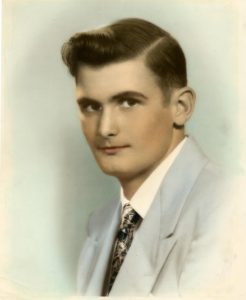
After graduating from Fordham, William Lesko earned a medical degree from Seton Hall University and in 1968, he founded North Jersey Eye Associates in Clifton, N.J., where he practiced ophthalmology for nearly 50 years. He died in early 2019, and shortly after, Glenn Lesko learned from one of his father’s former colleagues that a few Fordham football student-athletes were looking for internships. Lesko said he reviewed their resumes and had a thought: “Some of our best guys went to Fordham. We have three really strong performers at DASH that are Fordham alums.”
Then the idea came together—honor his father’s love for his alma mater by providing Fordham student-athletes with opportunities through the Dr. William S. Lesko Internship program.
“[My dad] always thought about the ideal student-athlete as being very positive and productive, people who can handle a high academic workload and also go out there and do all the work that’s required on the fields and also maintain other interests,” Lesko said. “People like that really have a great chance for success.”
The partnership, which offers paid internships, is available to high-achieving players who meet certain criteria, including “class performance, athletic commitment, and well roundedness.”
Conlin said that Fordham football players develop a range of skills, on and off the field, that serve them well in internships and careers.
“Our guys have to [learn]time management, they handle adverse situations [and]… obviously they work in a team every day,” he said. “The 11 guys in football have to function together in order to have success, and it’s a cliché, but it’s true that if one or two guys aren’t doing what they need to do, something very, very bad can happen. And that’s obviously a microcosm of the real world.”
Lesko noted that teamwork and discipline are two keys for success that many student-athletes already have.
“I found that student-athletes are really great in teamwork, goal-driven environments—they understand team goals, they understand how you can collaborate, and also be super focused on the goal,” he said. “And, obviously, discipline—you’re not going to get through a great school like Fordham and also put all the hours that are required into your sport without being a disciplined, hard worker.”
Putting Liberal Arts Skills into Practice
One Fordham football player, Jack Gildea, GABELLI ’21, has participated in the internship program, which began in 2020, and current DASH employees and Fordham alumni said that they are excited for the program to expand.
Hunter McCarthy, FCRH ’16, a director at DASH, said that Fordham’s core curriculum and its emphasis on the tools a liberal arts education can provide helped him develop critical thinking skills that have served him well in the fast-paced financial technology industry.
“I think just sort of the breadth of the education—all the different subjects that you learn about, you become a jack of all trades,” said McCarthy, who majored in international political economy. “Just being able to learn a lot of different fields is something that has been useful for me at DASH. When you work at a smaller company, you’re put into different roles, and it’s up to you to wear a lot of different hats.”
McCarthy said that he’s noticed some common traits among Fordham students and alumni he has worked with at DASH.
“They’re more than willing to help—you get put in a lot of different group projects, but you’re also asked to work independently. So you have to have different skill sets for different times,” he said. “And I think they’ve more than demonstrated that they have those skill sets. Whatever scenario might come up, whatever we might need—you’re not going to get anything but their best effort.”
Eugene Kearns, FCRH ’99, a managing director at DASH, said that blend of adaptability and a strong work ethic is especially important during this time when many people are working remotely.
“I think in a virtual experience, you’re going to need to be self-motivated, you’re going to have to be able to be a problem solver, and those skill sets are going to be so important,” he said. “I think Fordham being a city university, it becomes more natural.”
In addition to fostering partnerships with companies, like the one with DASH, Fordham’s Office of Career Services has been working with the alumni relations office to connect students and recent graduates with internship and career opportunities through the Rams Helping Rams program and other initiatives. To learn more, visit the career services section of the Fordham website.
]]>From Oct. 1 to 4, hundreds of alumni, family, and friends—from as far as Germany—tuned in for an expanded series of virtual events that drew on some of the best-loved Homecoming traditions, like the 5K Ram Run and tailgate parties, and included a “pub” trivia competition, updates on academic and student life amid COVID-19, and a tribute to the 50th anniversary of a Fordham football milestone.
In addition to joining panels and discussions sponsored by the Office of Alumni Relations, Fordham graduates took to social media, where thousands viewed Homecoming Instagram stories and tweets shared via the @fordhamalumni accounts, and others used the #FordhamHomecoming20 hashtag to post their own messages, including pictures of pets and kids decked out in Fordham gear.
A Forum for FCLC
Things kicked off on Thursday evening with a panel discussion featuring two relative newcomers to the Fordham College at Lincoln Center community: Laura Auricchio, Ph.D., who became dean of the college in August 2019, and Tracyann Williams, Ph.D., who joined FCLC as assistant dean for student support and success last February.
Fordham University Alumni Association Advisory Board member Samara Finn Holland, FCLC ’03, moderated the discussion, during which the deans shared their observations about FCLC students.
“They are an amazing bunch of people,” Auricchio said. “These are students who are not only intelligent and motivated, but they’re really just decent, kind, wonderful human beings.” She recalled several instances of students greeting her when they saw her around the city.
Auricchio noted that political science, economics, and psychology are the three most popular majors among current FCLC students, and the fashion studies minor is growing particularly quickly. She said her office is focused on four areas: connecting to neighbors, enriching courses, enhancing research, and globalizing the curriculum.
Both she and Williams addressed the unique challenges faculty and students face during the pandemic, and Williams noted that part of her job is to help students acknowledge their feelings of disappointment that it’s not a typical academic year, and doing what she can to assist them.
“I am very much interested in always asking students what their needs are and not deciding for them,” she said.
Having worked at other New York City universities before arriving at FCLC, both Auricchio and Williams shared what they think makes Fordham so special.
“I feel as though it’s a unique place where students can come be part of a deeply caring, close-knit community that will support them and help them as they branch out into the city,” Auricchio said. “And to me, it’s just the best of both worlds.”
Pub Trivia at Home
Alumnus Tim Tubridy, FCRH ’99, and his brother, James Tubridy, co-owners of DJs @ Work, hosted a virtual pub trivia session on Friday night. Attendees were invited to answer 10 Fordham-themed questions, either individually or as teams.
The first question of the night delved into a bit of the University’s architectural history: “For what church were the stained-glass windows in the University church intended?” Father McShane delivered both the question and answer (St. Patrick’s Cathedral, when it was located on Mulberry Street), joking that he’d been imagining Jeopardy! theme music playing as he gave contestants time to respond.
Other fun facts unearthed during the Q&A included how many books are housed in the Fordham libraries (more than 2 million), how many acres the Lincoln Center and Rose Hill campuses encompass (8 and 85, respectively), and how many live ram mascots have lived on campus (28).
At the end of the hour-long session, three teams were tied for first place with a whopping 20,000 points each.
A Virtual 5K Ram Run
While the 5K Ram Run is usually held at Rose Hill during Homecoming weekend, this year, alumni were invited to run, jog, or walk a five-kilometer trek of their own and to share photos on social media. Runners were also encouraged to share their finishing times by taking screenshots of their running apps, and the Office of Alumni Relations will be sending prizes to those who submitted their times.
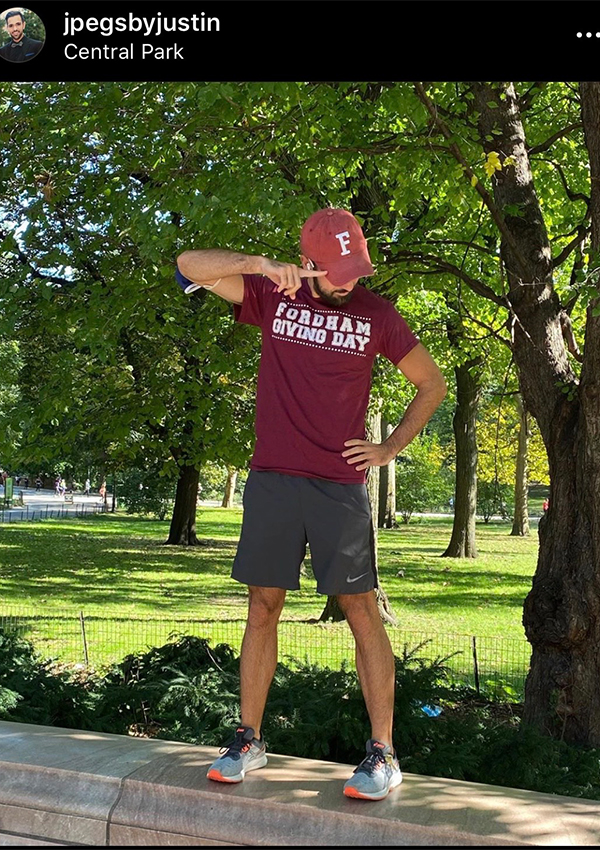
Justin LaCoursiere, FCRH ’12, posted a photo from Central Park and said, “Fordham Homecoming looks a little different this year, but I’m still taking part in some fun [virtual]activities, like the Annual 5K Ram Run.”
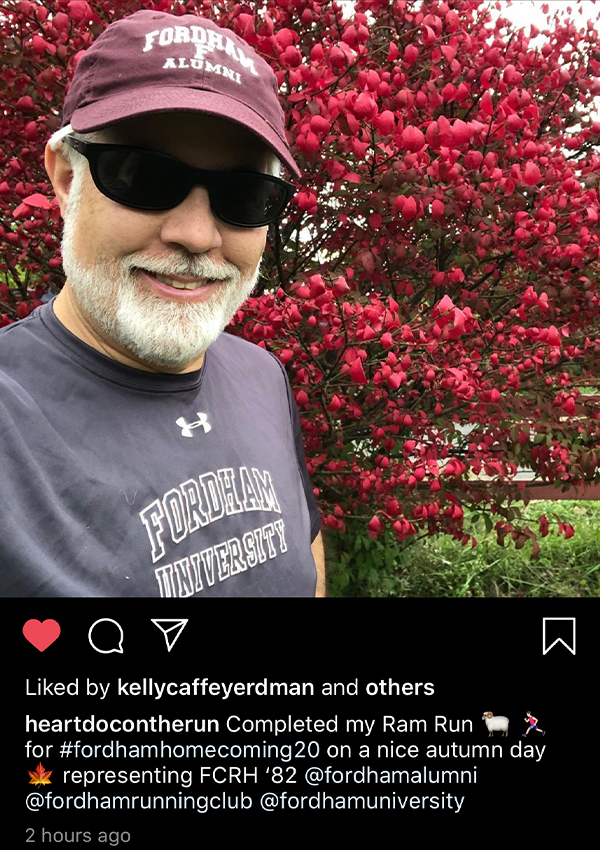
Academic and Student Life Amid the Pandemic
On Saturday morning, a panel of Fordham administrators and faculty discussed the continued uncertainty of COVID-19, its impact on current and prospective Fordham students, and how they’re working to build and strengthen a sense of community under the circumstances. The conversation was moderated by Michael Griffin, associate vice president for alumni relations.
J. Patrick Hornbeck, professor of theology, secretary of the Faculty Senate, and special faculty advisor to the provost for strategic planning, said that soon after Fordham canceled in-person classes and shifted to a virtual format this past March, faculty began planning to avoid such abrupt disruptions for the fall semester. That’s how Fordham developed its flexible hybrid model, which mixes online and in-person learning.
“We would provide opportunities for students to learn and for faculty to teach in several different modalities,” he said. “The idea was, we did not know how things were going to go week-by-week and month-by-month. How could we deliver [a Fordham education]regardless of the way the pandemic would play out?”
During the panel, Patricia Peek, Ph.D., dean of undergraduate admission, said that some of the changes implemented this year, such as virtual guided tours and information sessions, could become permanent to help make Fordham more accessible in the long term.
“I think, even when we’re fully on the ground, we will now always have virtual events because they’re providing so many opportunities and access for students,” she said.
Clint Ramos, head of design and production for Fordham Theatre, noted that the shift “was especially challenging for theatre because our education … is really experiential and a lot of our pedagogy is founded on the ability to gather.” But he said the program has met these challenges head-on, pointing to opportunities for creativity, like a collaborative effort he initiated with theater programs at Princeton, Georgetown, SUNY Purchase, and UMass Amherst. The One Flea Spare Project allows students to virtually attend classes at other universities and collaborate with each other on projects on multiple platforms based on themes in One Flea Spare, a 1995 play by Naomi Wallace set in a plague-ravaged London during the 17th century.
Juan Carlos Matos, assistant vice president for student affairs for diversity and inclusion, spoke about creative ways in which students have tried to maintain a sense of community, whether or not they’re studying on campus. This has included hosting socially distanced outdoor events, such as a “silent disco” on the plaza at Lincoln Center or a musical performance from the Coffey Field bleachers at Rose Hill, for an online audience and a limited number of students in person.
He also said that the pandemic has sharpened students’ focus on social justice, in particular the calls for racial equality that were revitalized this summer.
“Energy that usually is exhausted on other things was nailed into Black Lives Matter in a way where folks who have privilege are just realizing, ‘Hey, these things are happening,’ whereas folks on the margins have always experienced these things.”
Matos said this has spurred action at the University, including an anti-racism plan from Joseph M. McShane, S.J., president of Fordham. And he said the offices of student and multicultural affairs are continuing to offer a variety of programming to keep students engaged. One of the benefits of having virtual or hybrid events is that more students can attend.
“Sometimes it’s difficult for someone to have to choose one campus or the other or we may be offering something on one campus and not the other,” he said. “But virtually, now people can attend in any capacity.”
Shakespeare and Pop Culture
Shakespearean scholar Mary Bly, Ph.D., chair of Fordham’s English department, led a mini-class titled “Pop Romeo & Juliet” on Saturday afternoon. Attendees were encouraged to watch Baz Luhrmann’s 1996 film, Romeo + Juliet, prior to the class, during which Bly delved into the afterlife of the teen duo and their famous star-crossed love.
“Sociologists have made a pretty reasonable case for the argument that Romeo and Juliet actually changed the way we think about love in the Western world, which is very interesting,” Bly said.
Joined by English professor Shoshana Enelow, Bly discussed the idea of cultural capital, looking at how the characters of Romeo and Juliet have survived and how they’ve been transformed in modern adaptations, other films, music, and advertisements. She and Enelow drew parallels to West Side Story, the Beatles, and even a Taylor Swift music video, inviting attendees to write in impressions and examples of their own using Zoom’s Q&A feature.
An Afternoon with Athletics
Fordham sports fans attended two athletics-focused virtual events on Saturday afternoon, including a conversation between Ed Kull, interim director of athletics, and Head Football Coach Joe Conlin.
While the football season, along with those of other fall sports, has been pushed back to spring 2021, winter sports like basketball are planning to get started in late November. Kull highlighted some of the work that has been done to facilities during the pandemic, noting that not having students around for games has allowed several projects to be completed earlier than expected. Among the upgrades that players, coaches, and fans will now find are a new floor for the Frank McLaughlin Family Basketball Court in Rose Hill Gym, renovations to the strength and conditioning and team medicine spaces, and new offices for football staff.
As his team prepares to play in the spring, Conlin discussed the changes to workouts and practices they’ve had to adopt in the time of COVID-19, including health monitoring, socially distanced weight training, and wearing masks under their helmets during practice. Although he and his staff are not allowed to recruit high school players in person this year, they have been talking to recruits over Zoom and reviewing videos to assess their strength and athleticism.
“It’s been challenging at times, but it’s also been a lot of fun,” he said of this new way of doing things on and off the field. “We’ll continue to make it work for as long as we have to.”
Kull noted that out of the 44 seniors across spring sports whose final season was interrupted by cancellations last spring, 19 have decided to come back for a fifth year of eligibility.
Later that afternoon, the Tubridy brothers returned to host a virtual tailgate party that featured a welcome from Father McShane, trivia, performances by the Fordham band from the Coffey Field bleachers, and video updates from departments and groups like the Fordham University Alumni Association, the Center for Community Engaged Learning, and the Mimes and Mummers Alumni Association.
Kull and Conlin also returned for a pre-recorded video from the gravesite of Fordham graduate and NFL coaching legend Vince Lombardi, FCRH ’37, an appropriate lead-in to the tailgate’s final portion: a roundtable discussion with nine players from Fordham’s 1970 football team, which defeated Georgetown 50 years ago during that year’s homecoming game, just weeks after Lombardi’s death.
Moderated by WFUV’s Emmanuel Berbari, a Fordham College at Rose Hill senior, the players recalled the dominant ground game displayed by the Rams in their 39-17 win over the Hoyas, led by Eric Dadd’s 235 rushing yards and three touchdowns. Kevin Sherry, GABELLI ’70, who played offensive tackle, noted that Georgetown had beaten Fordham the previous year, and the Rams were looking for revenge.
Perhaps an even greater motivation for the team was the emotional pregame scene, when Lombardi’s widow, Marie, his brother Joseph, and the remaining members of Fordham’s “Seven Blocks of Granite” offensive line from Lombardi’s playing days honored the Fordham and NFL legend, who had died of colon cancer on September 3. The 1970 season also marked the return of varsity football to Fordham.
Peter “Pino” Carlesimo, FCRH ’71, the team’s starting quarterback, was among the panelists. “I think the importance of the game can be summed up very easily when I when I looked at that film and I saw my uncle Pete [Carlesimo, FCRH ’40, Fordham’s athletic director at the time] escorting Mrs. Lombardi off the field and tears coming down her eyes,” he said. “It was probably the biggest game I played in my career.”
Closing with Centeredness and Prayer
On Sunday morning, Carol Gibney, associate director of campus ministry for spiritual and pastoral ministries and director of spiritual life, leadership, and service, led a session focusing on “integrating Ignatian spirituality with the practice of yoga.” During the 45-minute practice, Gibney used breathwork to break down the word “grace,” infusing the ideas of gratitude, reflection, affirmation, centeredness, and enthusiasm and excitement into the yoga flow.
The virtual—but still communal—Homecoming weekend came to a close with a livestream of Mass from University Church, concelebrated by Father McShane and Damian O’Connell, S.J., alumni chaplain.
—Additional reporting by Kelly Kultys and Sierra McCleary-Harris
]]>